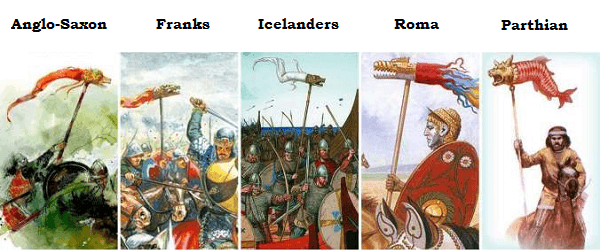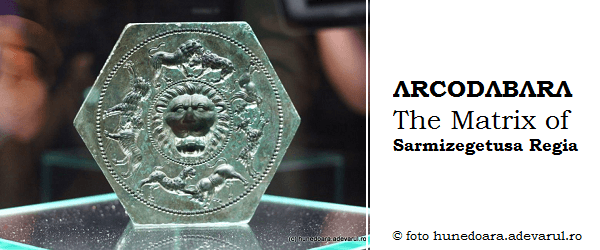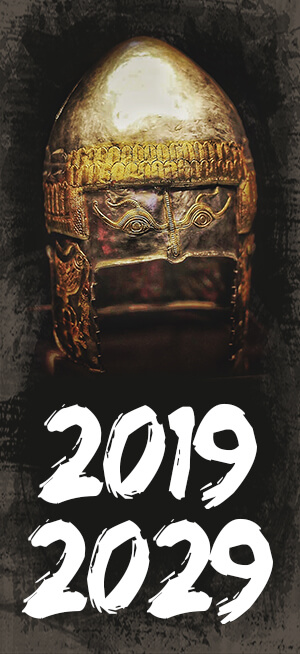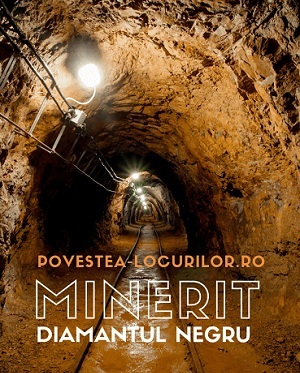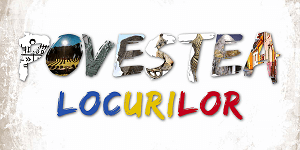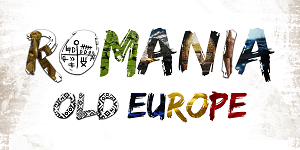[ are Moldova un videoclip de prezentare păgân? ]
Despre dacopaţi & dacopatie
Ce este dacopatia?
“… dacopatia este un substitut de identitate.” Dan Alexe
* extras din “Dacopatia şi alte rătăciri româneşti”
“When we speak about Dacia and Dacians, we can only do it as a reference point in history, but we cannot identify them with these terms, as they only reflect a history that is not older than ca. 2.000 years.
Leibniz (Collectanea Etymologica):
“The Daco-Getes are considered to be the founders of the Teutons through the Saxons and Frisians, of the Dutch and Anglians.”
Dacia was only a part of Geția, only a Roman province, a late appearance in history, where the Dacians or Davo-Getes lived. We also find in other historical documents, terms almost lost in history, such as Gitia, Du Gitii (Dio Getia) or Arima, where the enigmatic Hyperboreans lived.
“The inhabitants of northern lower Danube can be regarded as the ancestors of humanity.” Louis de La Vallée-Poussin
But they had many names such as, Arimins, Ars, Rohmans, Aryans, Rumunians and later Rumanians (today Romanians), some of them being exonyms and some ethnonyms.
About the term ‘Gitia’ we have as a reconfirmation of the sacrality of its name, the Vedic opera Bhagavad Gītā (pronounced ‘Geeta’) which means ‘Song of the Lord’ or ‘Divine Song’ that speaks about the noble Aryans (‘Deva’ or ‘Devi’ meaning ‘The Divine’) who invaded the rich land of India.
Also we have the terms Deva/Davo/Dava/Daoi/Dioi/Dai/Daos/Danaoi/Dahae | ΔABO ΨETO – DAB(V)O GETO = ‘The Brilliant’ or ‘The Divine’ or ‘The Wolves’, but they also have the meaning of ‘inhabitants of Davas’, where ‘Dava’ = ‘Fortress’. All these terms are in fact epithets that describe the Getes.
Homer about the Getes: “Out of all the peoples, they are the wisest.”
When we talk about wolves we can give as an example Apollon Lykeios the Hyperborean (the Lycan) which in translation means ‘The Light of the Wolf’ or ‘The Enlightened Wolf’.
The exonyms ‘Dac’/’Daki’ were used by the Romans to describe the Getes.
The same goes for the exonym ‘Thracian’ where the word ‘trake’ for the Greeks, really meant ‘north’. ‘Thracia’ = The sum of all regions inhabited by the Thracian Getes or Thraco-Getes, meaning the Getes of the North (north of Greece). The word ‘Get’ is central to all native tribes. It is a shame the real history is so little known by the masses, because everybody is promoting great cultures by identifying them with exonyms given by the Greeks or the Romans.”
To demonstrate the Sanskrit resonance of the Rumanian language
we shall use just a quick example:
Rumân (Rumanian), mână (hand), a mâna (to lead/to take action), rămâne or rămână (to remain). Where we observe a similar form which suggests that ‘Rumanian’ also means ‘to remain’, meaning something that persists – continuity. Ramana – Indian name. Ram(a) – Deity from the Hindu pantheon, in Rumanian ‘ramură’ or ‘ram’, means ‘branch’.
In a village situated near the banks of the Danube, from Mehedinți County, Romania, the peasants use the following words to call for ducks or piglets:
For ducks: MANI MANI (with repetition). Where ‘Mani’ resembles ‘Manu’, another deity from the Hindu pantheon, but also a Rumanian name, where Manu = Emanuel (E-Manu-El), in translation ‘He is Manu’. In Hindi the word ‘Mani’ also means ‘pearl’ or ‘jewel’. But the root ‘MA’, by repetition becomes MAMA, meaning mother.
For piglets: GANI GANI (with repetition). Where ‘Gani’ resembles ‘Ganesh’, another deity from the Hindu pantheon. The root ‘GA’ is another primordial syllable which means ‘earth’ (Gaia). But in the Rumanian folklore ‘Gaia’ is a goddess representing death as a bird of prey, which takes the souls of people after they die.
We have another Rumanian saying:
“A dat iama în găini.” meaning “Iama killed the hens.”
* where Yama is another deity from the Hindu pantheon (the God of Death).These repetitions MANI MANI and GANI GANI resemble the Hindu mantras.
So it is fair enough to say that in the history of our ancestors, the precedence and honor go to the Getes, respectively to the Pelasgo-Getic peoples.
Dacopat?
Te invităm pe blogul ΛRCODΛBΛRΛ:
[λrcodλbλrλ] citeşte articolul întreg * a story never told
Ce este totuşi dacopatia?
Dan Alexe… 😉
Click to Tweet: “Dacopatia, un substitut de #identitate!
#ReBrand #ROMânia #Dacians #Cucuteni #Niascharian #λrcodλbλrλ #Gitia”
+40744336643 | roscadaniel@gmail.com | office@b2b-strategy.ro
[vCitaMeetingScheduler]
Tags: Cultura Cucuteni, Daci, Dacopatie, Dan Alexe, Decoding Dacia, Geţi, Geţia, Niascharian, ReBrand Romania, Redescoperim ADN-ul Romanesc, Sarmizegetusa, Sarmizegetusa Regia, ΛRC⊕DΛBΛRΛ









